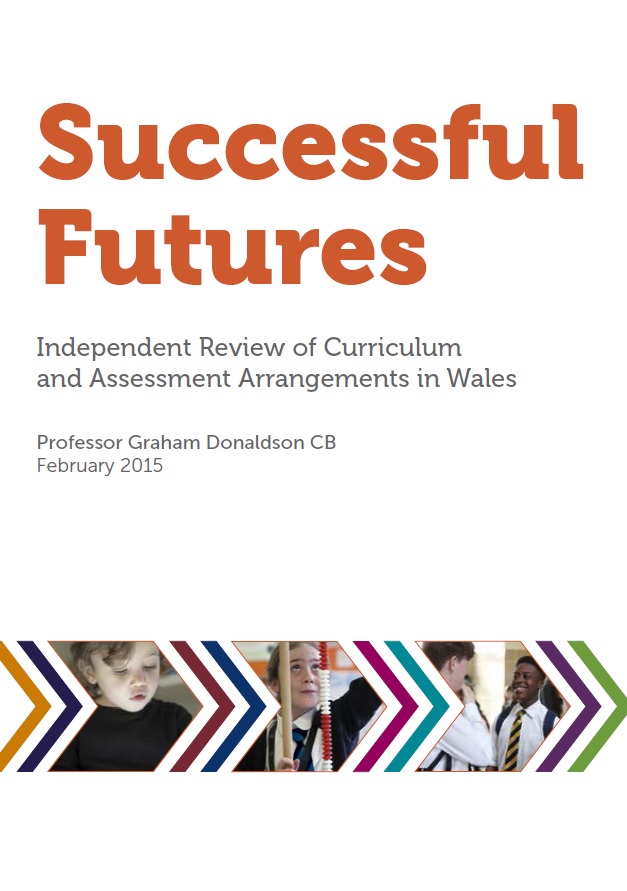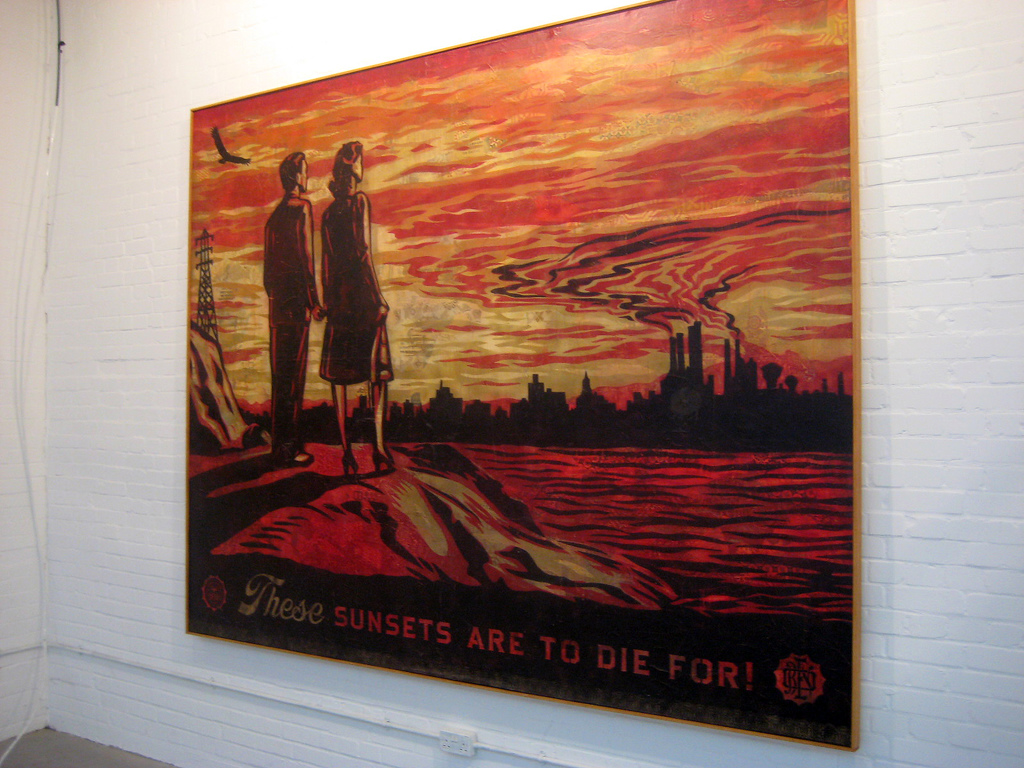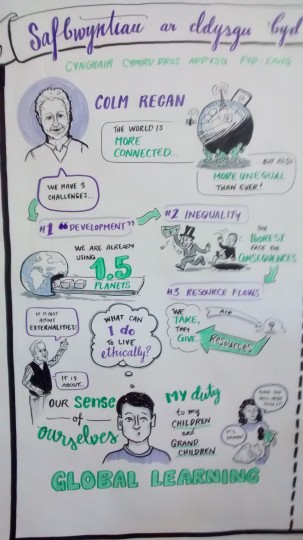The Wales Alliance for Global Education (WAGE) held its first  seminar in Cardiff on 9th July 2015. Colm Regan of 80:20 and developmenteducation.ie was invited to make an input to start the day off. He, like others that day reflected on the recently published Donaldson report, Successful Futures.
seminar in Cardiff on 9th July 2015. Colm Regan of 80:20 and developmenteducation.ie was invited to make an input to start the day off. He, like others that day reflected on the recently published Donaldson report, Successful Futures.
………………………………………………………………………….
Professor Graham Donaldson was commissioned by the Welsh Government to undertake a review of curriculum. As he puts it in the introduction:
“My proposals are radical and wide-ranging. They are interrelated and should be seen as an integrated set and not separately. They build on the many existing strengths of Welsh education and aim to provide both a vision for the future and a means of realising that vision that is coherent and manageable.”
The Government has endorsed the report and it is now the focus for much fresh thinking about curriculum and learning in Wales.
‘Successful Futures’ features four ‘purposes’ for education in schools that will enable young people to be:
- ambitious, capable learners, ready to learn throughout their lives;
- enterprising, creative contributors, ready to play a full part in life and work;
- ethical, informed citizens of Wales and the world;
- healthy, confident individuals, ready to lead fulfilling lives as valued members of society.
The report and these purposes bring both relief and excitement to us at this gathering, at the formative stage of WAGE. They offer legitimacy as well as a vision that complements our own ambition for more dynamic and engaged learners, and for a society more able to respond creatively to contemporary issues linked to national and international citizenship, now and in the future.
Colm Regan highlighted this synergy and the potential for work supporting Donaldson and to also improve the quality of development education / global learning. He then invited us to reflect on ethical citizenship — on what “ethical, informed citizens of Wales and the world” might mean in reality.


Colm used a poster of an industrial landscape with the caption – “These sunsets are to die for” to raise debate on the theme “we are the problem, not them”. The reactions suggested a welcome endorsement of the concerns that had brought us to this seminar. It felt challenging but comfortable.
But not so comfortable … the ethical issues about the way we (in WAGE) approach the task, how we see our role, and the messages we are most concerned about, in the context of what Donaldson aspires to.
How do we make sure we are helping build that vision of education in Wales rather than just exploiting it? Is it possible that because we see our messages as being ethical that we do not feel the need to consider the ethics of how we do it?
… I am challenged by that possibility. I do not have an answer but as a result of the seminar … I am clearer about the need to ask the question.
Project everyone?
Just as I was starting to take on those thoughts, we were into the next presentation. It was about Project Everyone. I like what they describe as the audacity of the campaign but this seemed to contrast with being asked to engage uncritically with the proposed 17, yes 17, new sustainable development goals (SDGs) to be launched later this year, and to get learners to do the same.
Where is the vital critical thinking characteristic of global education in such an approach?
The Project invites all to endorse the idea of the “largest lesson ever”; a scheme dreamt up with commendable enthusiasm but perhaps insufficient reflection on how its approach might fit with the qualities such as those highlighted by Donaldson. The power of the idea suggested by the project was all the more effective because to question it, as Colm did, was easily dismissed as negativity rather than as critical engagement with the issues it addressed.
I have no idea whether this just another one of those big ideas that regularly flash across the development firmament but it did feel like one. The need for a ‘quick-fix’ often wins the day. However, with individuals such as Ken Robinson involved, perhaps it will be more creative and more questioning than it seemed to be – let’s hope so.
An opportunity for fresh strategy?
The WAGE seminar set out to “reinvigorate debate” which I feel it did.
The new SDGs, as the project title reminds us, are for everyone. They are designed to challenge us here in Wales, not just the so-called developing countries. There are many issues to review that stem from the SDGs but for us the issue of change in education and how that change is supported is particularly important.
Donaldson too offers us many issues and ideas. For example he talks about subsidiarity and the need for curriculum that is,
“commanding the confidence of all, while encouraging appropriate ownership and decision making by those closest to the teaching and learning process.”
He explores refreshed notions of curriculum and pedagogy focused on “skills, competences, knowledge and dispositions”. The emphasis is on learners, their dispositions and their life long relationship with an “increasingly complex and rapidly changing world”. Enabling approaches are core to the model of development he proposes.
ESDGC [Education for sustainable development and global citizenship] is very important to us but it is not mentioned as such in the Donaldson report, nor is it in Leighton Andrew’s lengthy book reflecting on his time as Minister.
The Estyn report Progress in ESDGC is very useful but does not offer a vision about what ESDGC should be aspiring to in the future. Nor was that part of its remit. Is this a problem … or an opportunity for WAGE?
So I find myself reflecting on two propositions:
1. that there an opportunity to stimulate creative work with education practitioners about future visions of ESDGC within the context of Donaldson, possibly including the renaming of it to make it more learner centred;
2. that if WAGE is to be something new and take a lead in the context of SDG challenges and initiatives like Donaldson we need to give some space to check out our own assumptions, develop our collective dispositions about how we enable change and seek to demonstrate what we might mean by ‘ethical citizenship’ … to show, as the starting point for engaging others, that those challenges are for us too.
